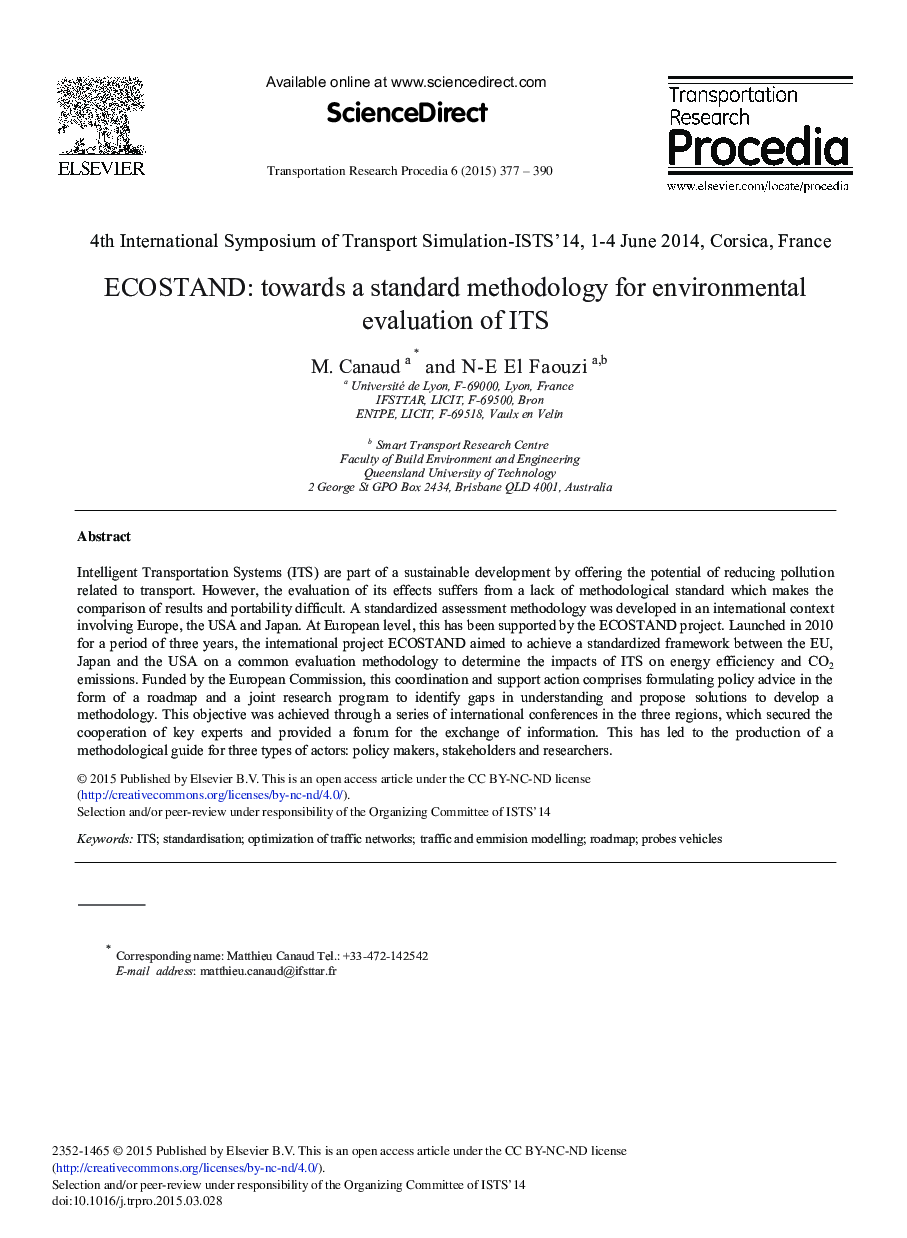| Article ID | Journal | Published Year | Pages | File Type |
|---|---|---|---|---|
| 1106565 | Transportation Research Procedia | 2015 | 14 Pages |
Intelligent Transportation Systems (ITS) are part of a sustainable development by offering the potential of reducing pollution related to transport. However, the evaluation of its effects suffers from a lack of methodological standard which makes the comparison of results and portability difficult. A standardized assessment methodology was developed in an international context involving Europe, the USA and Japan. At European level, this has been supported by the ECOSTAND project. Launched in 2010 for a period of three years, the international project ECOSTAND aimed to achieve a standardized framework between the EU, Japan and the USA on a common evaluation methodology to determine the impacts of ITS on energy efficiency and CO2 emissions. Funded by the European Commission, this coordination and support action comprises formulating policy advice in the form of a roadmap and a joint research program to identify gaps in understanding and propose solutions to develop a methodology. This objective was achieved through a series of international conferences in the three regions, which secured the cooperation of key experts and provided a forum for the exchange of information. This has led to the production of a methodological guide for three types of actors: policy makers, stakeholders and researchers.
